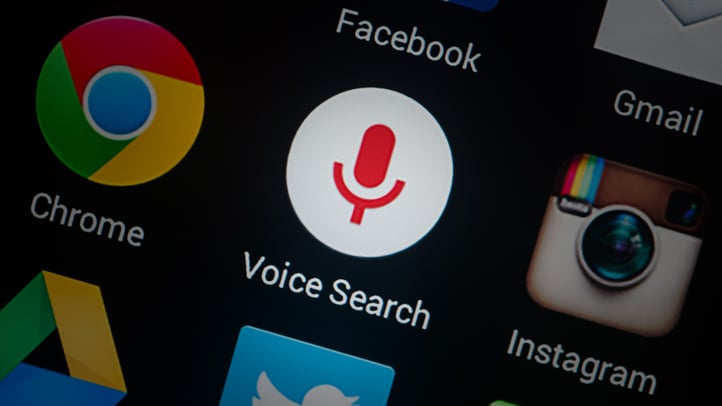Mila Hose | Dec 15, 2016 12:51:53 PM
3 Min Read

Technology is rapidly changing every day, and brands must evolve at the same pace to satisfy the needs of consumers who continue to adopt it. The proliferation of mobile devices and the continuously evolving capabilities around artificial intelligence and voice search force businesses to adapt in order stay relevant and get more personal.
The Enterprise Challenge: Connecting With the Consumers of Tomorrow
Mobile devices and voice search are among some of the most quickly growing technologies, while also being some of the most underutilized by brands to this point. But Deloitte predicts that by 2020, 95% of top enterprise brands will have integrated cognitive technologies into their products. This means that enterprises are beginning to see customer habits shift and are seeking to experiment with different methodologies for implementing budding technologies in order to reach these customers.
The use of personal assistants, such as Apple’s Siri, Google’s Google Home, Microsoft’s Cortana and IBM’s Watson increased 87% within recent years, with over half of all US adults using voice search on a regular basis. Additionally, 22% of voice searches have local intent and mobile voice searches are three times more likely to be local-based than text search. Voice search is becoming increasingly connected to local search, and brands that are optimized for voice searches could see greater traffic volume and increased consumer loyalty. Artificial intelligence can also span into aspects such as messaging and machine learning, which can help enterprises automate tasks and reach more customers without expanding workforce.
Mobile devices have also changed the way that people operate on a daily basis. Mobile now serves as as a personal assistant, helping users search for directions, save a reservation or even book a ride. The ability to increase brand engagement by integrating these new mobile technologies is evidenced by the increased engagement that many brands have seen after integrating popular services such as Uber or DineTime. Branded apps that integrate these on-demand technologies and can better track in-store visits and teach marketers about push content that users actually want to receive.
Tomorrow’s consumers expect proactive brand interactions that are relevant and cognisant of their wants, needs and intent. Yet, many brands struggle to keep up with building that sense of personalization, and only a fraction even have a mobile strategy in the first place.
The Opportunity: Innovation through Local
The best way for brands to continuously beat out the competition is to keep the customer journey top of mind. Getting a customer to visit your store locations is not the goal anymore—it’s time for marketers to see past this small aspect and begin creating seamless interactions to lengthen the customer journey.
With so many channels for search and engagement, enterprises hold a wealth of big data, giving brands the potential to build more personalized customer experiences through semantic analysis. Gaining insights to spearhead the industry starts with maximizing this data and building off the data that is already available. With better data to evaluate customers, brands can proactively deliver personalized content that resonates with local audiences.
With an environment in which brands can experiment and control creative new marketing strategies using budding technology, enterprises will gain a robust data set to help them better understand and predict local consumers to enhance brand engagement. Mobile and AI are core aspects of an experimental marketing approach, and can provide a competitive advantage as consumers increasingly use their smart technologies to assist in their daily lives. Every online engagement is an opportunity for personalized interaction, learning and engagement.
Topics: Local Marketing, Artificial Intelligence, Brandify Labs
Content writer @ Brandify.
Offer Post Justifications Spotted in Local Results
Oct 4, 2021 8:47:46 AM
Monday Memo: More than Brands and Influencers, Consumers Trust Each Other
Sep 27, 2021 7:56:34 AM
Monday Memo: Google Adds “Latino-Owned” to GMB Identity Attributes
Sep 20, 2021 7:58:58 AM
Monday Memo: New Study Shows 94% of Consumers Use Online Business Directories
Sep 13, 2021 7:16:55 AM
Monday Memo: The Page Experience Update Has Fully Rolled Out
Sep 6, 2021 7:43:45 AM